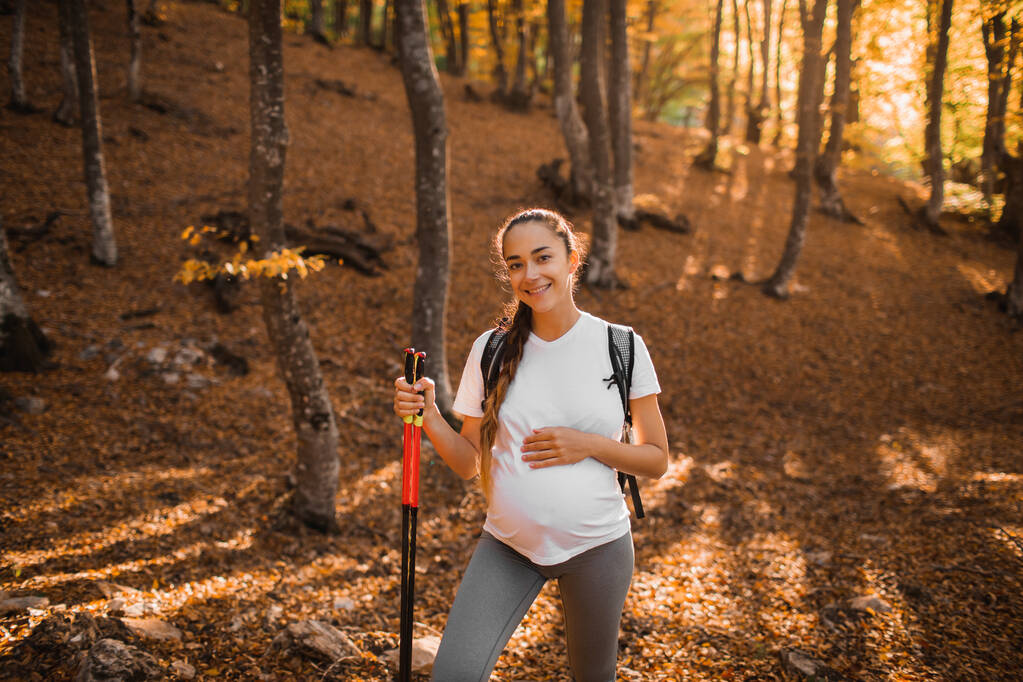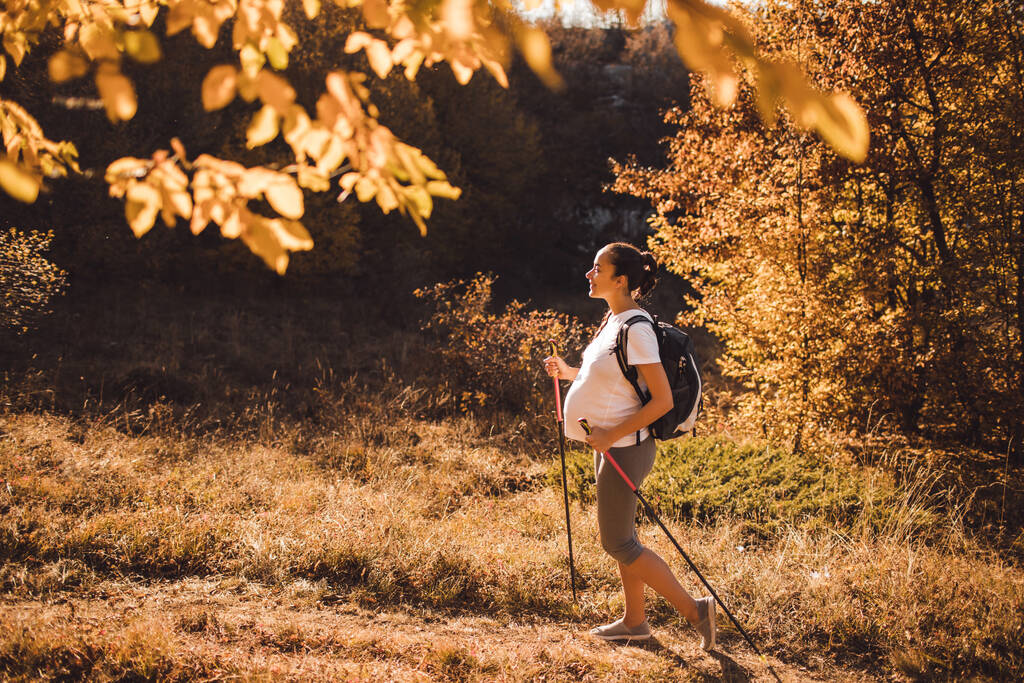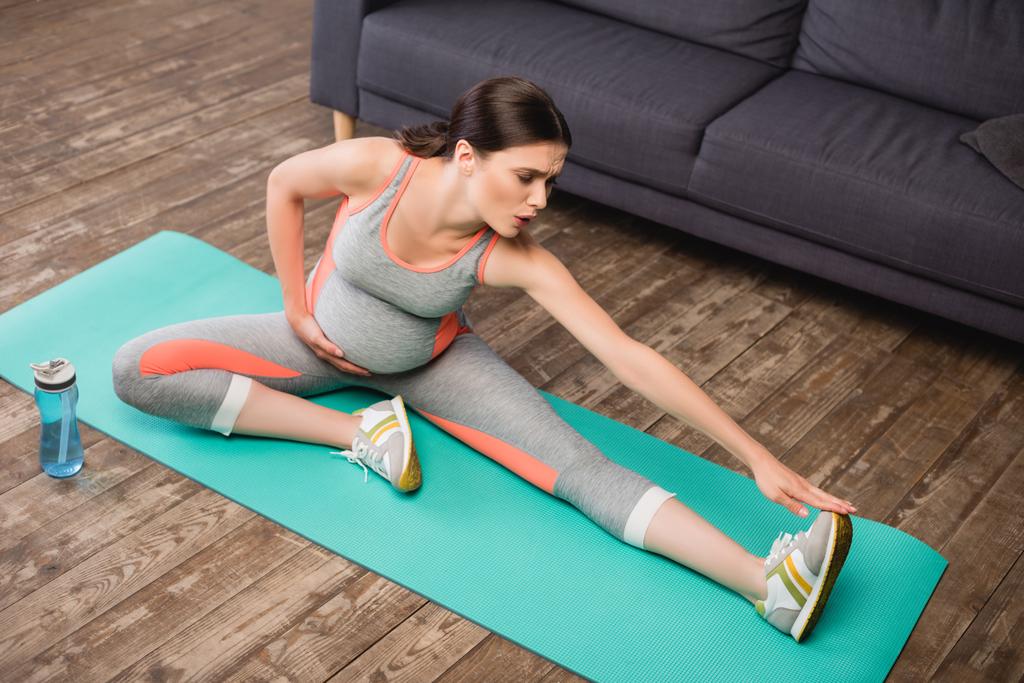Discover the potential risks and precautions associated with hiking during pregnancy.
What Are the Risks of Hiking During Pregnancy?
Hiking is a popular outdoor activity that allows you to connect with nature, get some exercise, and enjoy breathtaking views. But if you’re pregnant, you might be wondering whether it’s safe to hit the trails. After all, your body is going through some major changes, and you want to ensure the well-being of both you and your baby. In this article, we’ll explore the risks of hiking during pregnancy and provide some helpful tips to keep you safe on your outdoor adventures.

Understanding Pregnancy and Physical Activity
Before we dive into the potential risks, it’s important to understand the importance of exercise during pregnancy. Staying physically active can have numerous benefits, such as improving your mood, boosting your energy levels, and reducing the risk of gestational diabetes and pregnancy-related complications.
Exercise also helps you build the stamina you’ll need for the birthing process and postpartum recovery. However, it’s crucial to engage in activities that are safe for both you and your baby.
The Importance of Exercise During Pregnancy
Pregnancy is not a time to kick back and lounge around (although a bit of relaxation is definitely in order!). Regular exercise can help reduce discomfort, improve circulation, and strengthen your muscles, which will come in handy as your baby grows and your center of gravity shifts.
Exercise can also help you maintain a healthy weight gain during pregnancy, which is important for your overall health and the well-being of your baby. Additionally, staying active can help alleviate common pregnancy symptoms such as backaches, swollen feet, and constipation.
When it comes to exercise during pregnancy, there are various options to choose from. Low-impact activities like walking, swimming, and prenatal yoga are generally safe and beneficial. These exercises help improve cardiovascular health, increase flexibility, and promote overall well-being.
Strength training exercises, with proper modifications and guidance from a healthcare professional or certified prenatal fitness instructor, can also be incorporated into your routine. These exercises help maintain muscle tone and strength, which can support your changing body and prepare you for the physical demands of labor and childbirth.
How Pregnancy Affects Your Physical Capabilities
As your pregnancy progresses, you’ll notice changes in your body that may impact your physical capabilities. Your ligaments become more lax to prepare for childbirth, which can make you more prone to injuries if you’re not careful. Your balance may also be affected, especially in the later stages of pregnancy.
Furthermore, the extra weight you’re carrying can put additional strain on your joints and muscles. All of these factors should be taken into consideration when deciding on the level of physical activity you’re comfortable with, whether it’s hiking or any other form of exercise.
It’s important to listen to your body and make modifications as needed. Pay attention to any discomfort, pain, or shortness of breath during exercise, and consult with your healthcare provider if you have any concerns.
Remember, every pregnancy is unique, and what works for one person may not work for another. It’s always best to consult with your healthcare provider before starting or continuing any exercise routine during pregnancy.
By staying active and making informed choices, you can enjoy the benefits of exercise while ensuring the safety and well-being of both you and your baby.
The Potential Risks of Hiking While Pregnant
Now let’s address the potential risks of hiking while pregnant. It’s important to be aware of these risks so you can make an informed decision about whether hiking is right for you during this special time.
Hiking while pregnant can be a wonderful way to stay active and connect with nature. However, it’s crucial to consider the potential challenges and risks that may arise. By understanding these risks, you can take the necessary precautions to ensure a safe and enjoyable hiking experience.

Physical Strain and Exhaustion
Hiking can be physically demanding, especially if you choose challenging trails with steep ascents and descents. Pregnancy already puts strain on your body, so overexerting yourself can lead to fatigue, muscle strain, and elevated heart rate.
Listening to your body is key during pregnancy. Take breaks as needed and pace yourself accordingly. Consider opting for shorter, less strenuous hikes that allow you to enjoy nature without pushing your body to its limits. Remember, the goal is to stay active and maintain your fitness level, not to conquer the highest peaks.
Additionally, it’s important to consult with your healthcare provider before engaging in any physical activity during pregnancy. They can provide personalized advice based on your specific circumstances and medical history.
Risk of Falls and Injuries
While hiking, the terrain can be unpredictable, with uneven paths, rocks, and tree roots. This increases the risk of tripping and falling, which can be dangerous for both you and your baby.
Wearing proper footwear with good traction is essential to reduce the risk of slips and falls. Taking your time and being mindful of your surroundings can also help minimize the chances of accidents. It’s advisable to hike with a companion who can provide support and assistance if needed.
Furthermore, consider choosing well-maintained trails that are less rugged and have clear pathways. This can help reduce the risk of injuries and ensure a safer hiking experience.
Dehydration and Overheating Concerns
When you’re pregnant, your body needs extra fluids to support the growth and development of your baby. Sweating during physical activity can lead to dehydration, which can have serious consequences.
Always bring plenty of water with you when hiking and take sips frequently to stay hydrated. It’s recommended to drink at least 8-10 glasses of water per day during pregnancy, and even more when engaging in physical activities like hiking.
Avoid hiking during the hottest parts of the day when the sun is at its peak. Instead, choose early morning or late afternoon hours when the temperature is cooler. Dress in lightweight, breathable clothing to help regulate your body temperature and prevent overheating.
Additionally, it’s important to be aware of the signs of dehydration, such as excessive thirst, dry mouth, dizziness, and dark-colored urine. If you experience any of these symptoms, it’s crucial to rest, rehydrate, and seek shade.
In conclusion, while hiking can offer numerous benefits during pregnancy, it’s essential to be mindful of the potential risks. By taking necessary precautions, such as choosing appropriate trails, wearing proper footwear, staying hydrated, and listening to your body, you can enjoy the beauty of nature while keeping yourself and your baby safe.
Precautions to Take When Hiking During Pregnancy
While hiking during pregnancy does come with some risks, there are precautions you can take to minimize them and enjoy the great outdoors safely. Let’s explore some important steps to consider before hitting the trails.
Choosing the Right Hiking Trail
When selecting a hiking trail, look for options that are suitable for all skill levels. Stick to well-maintained paths without too much elevation gain or difficult terrains. Research the trail beforehand to ensure it’s appropriate for pregnant hikers.
If you’re unsure, consult with local hiking enthusiasts, park rangers, or fellow expectant mothers who have experience hiking during pregnancy. They can offer valuable insights and recommendations.
Consider exploring trails that offer scenic views of nature, such as lush forests, serene lakes, or breathtaking mountain ranges. These picturesque landscapes can provide a soothing and calming environment, allowing you to connect with nature and find peace during your hike.
Essential Gear for Pregnant Hikers
Investing in proper gear is essential for a safe and comfortable hiking experience. Make sure you have sturdy hiking shoes that provide good support and traction. Consider using trekking poles to help with balance and reduce strain on your joints. A supportive backpack can distribute the weight evenly and prevent unnecessary strain on your back.
Additionally, wearing comfortable and breathable clothing is crucial to keep your body temperature regulated during the hike. Opt for moisture-wicking fabrics that can help keep you cool and dry.
Don’t forget to protect yourself from the sun’s harmful rays by wearing a wide-brimmed hat, sunglasses, and applying sunscreen with a high SPF. Pregnancy can make your skin more sensitive, so taking extra precautions is important.
Also, don’t forget to pack snacks high in energy and nutrients, such as trail mix or granola bars, to keep your energy levels up during the hike. Staying hydrated is equally important, so carry plenty of water and drink regularly to avoid dehydration.
Knowing Your Limits and Listening to Your Body
This is perhaps the most important precaution of all. Your body is undergoing significant changes, and it’s important to respect its limitations. If you feel tired, lightheaded, or experience any discomfort, it’s time to take a break or turn back.
Remember, hiking during pregnancy should be an enjoyable and rewarding experience, not a challenge to push your limits. Be mindful of how you’re feeling and adjust your pace accordingly.
During your hike, take the time to appreciate the beauty of nature around you. Observe the vibrant colors of wildflowers, listen to the soothing sounds of birds chirping, and breathe in the fresh scent of the forest. These moments of tranquility can provide a sense of peace and relaxation, benefiting both you and your growing baby.
Lastly, consider hiking with a companion or joining a hiking group specifically for pregnant women. Not only can this provide you with a sense of camaraderie, but it also ensures that you have someone to assist you in case of any unexpected situations.
By following these precautions and embracing the beauty of nature, you can have a safe and enjoyable hiking experience during your pregnancy. So lace up your hiking boots, pack your essentials, and embark on an adventure that will create lasting memories for both you and your little one.
Consultation with Healthcare Professionals
Pregnancy is a unique journey, and every woman’s situation is different. It’s always a good idea to consult with your healthcare provider before engaging in any physical activity during pregnancy, including hiking.
When to Seek Medical Advice
If you have any underlying health conditions, complications, or concerns about your pregnancy, it’s crucial to communicate these to your healthcare provider. They can provide personalized advice based on your specific circumstances and help you determine whether hiking is right for you.
Regular Check-ups and Monitoring
Regular check-ups throughout your pregnancy allow your healthcare provider to monitor your health and the development of your baby. They can offer guidance regarding physical activity, including hiking, based on your progress and any potential risks.
Alternatives to Hiking During Pregnancy
If hiking doesn’t feel right for you during pregnancy, there are plenty of alternative activities to stay active and connect with nature.

Low-Impact Outdoor Activities
Instead of hiking, consider activities like walking, swimming, prenatal yoga, or gentle stretching in nature. These activities provide similar benefits to hiking without putting excessive strain on your body.
Indoor Exercises for Pregnant Women
If outdoor activities aren’t your cup of tea, there are also various indoor exercises specifically designed for pregnant women. Prenatal exercise classes, stationary biking, and strength training with light weights can keep you active and fit.
Remember, the goal is to listen to your body and find activities that make you feel good and support your overall well-being during this special time.
In conclusion, hiking during pregnancy can be a safe and enjoyable way to stay active and connect with nature. However, it’s important to be aware of the potential risks and take necessary precautions to keep you and your baby safe. By choosing appropriate trails, using the right gear, and listening to your body, you can have a memorable hiking experience while pregnant. And if hiking doesn’t feel right for you, there are plenty of other low-impact activities to keep you active and engaged throughout your pregnancy. So lace up your hiking boots, grab your water bottle, and hit the trails with confidence!



